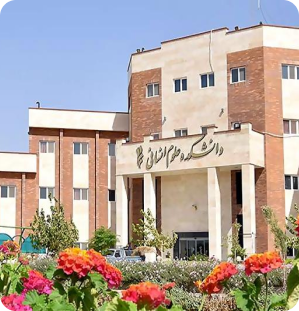English Language Translation Studies: Introduction, Review, and Career Prospects
Author: Office of International Cooperation Last Updated: May 6, 2025 Reading Time: 9 minutes

English Language Translation Studies is a popular field in the humanities, playing a key role in international communication, cultural exchange, and knowledge transfer. With the expansion of science and the globalization of scientific projects, the need for effective communication is felt more than ever. Therefore, the domestic and international job markets increasingly require specialized translators. This field, considered one of the needs of today's society, is attractive not only to Iranian students but also to international students. English Language Translation Studies offers a wide range of opportunities in employment, further education, and participation in scientific and cultural projects for those interested.
History of English Language Translation Studies
The history of English Language Translation Studies dates back many years. Abdolhossein Azarang, in a section of his book "History of Translation in Iran, from Ancient Times to the End of the Qajar Era," writes: "Writing the history of translation in any language or country is not the work of several individuals. Until all translated works, or at least parts of all translations, are compared by experts proficient in both the source and target languages and the subject matter of the work, with their originals, and a synthesis of the evaluation of all translations, considering the factors affecting them, is obtained, the path for writing the history of translation in its true sense will not be paved."
In the modern world, James Holmes was the first to speak of an independent field called "Translation Studies." His article, "The Name and Nature of Translation Studies," is considered a significant turning point in this field. Holmes, moving away from purely linguistic approaches, believed that the complexities of translation require an independent epistemic system; a system that can comprehensively examine the various dimensions of the phenomenon of translation. In this article, he first used the term "Translation Studies" and outlined the epistemic framework of this field, which later became known as the "Map of Translation Studies."
Who is the English Translation Major Suitable For?
Students who are interested in cultural interaction and promoting international customs and traditions can choose English translation as a suitable path for education and professional activity. This field has broad and diverse dimensions, allowing for its application in various areas. In general, the English translation major is suitable for individuals who possess the following characteristics and interests:
- They are interested in the English language and international cultures.
- They possess high accuracy, concentration, and analytical skills and enjoy studying scientific, literary, and cultural texts.
- They are interested in intercultural communication and global interactions.
- They are inclined to work in research, language education, or collaboration with international organizations.

Related Fields for Further Education
Graduates of this major can pursue further education at higher levels in the following fields:
- English Translation (Master's)
- English Language Teaching (Master's and Doctorate)
- English Language and Literature (Master's and Doctorate)
- Translation Studies (Master's and Doctorate)
- Linguistics (Master's and Doctorate)
Continuing education in these fields provides diverse pathways to enter the fields of teaching, research, specialized translation, media, and international organizations.
Job Opportunities for English Translation Graduates
Graduates of this field can work in various areas, including:
- Written Translator: Translating books, articles, specialized documents, and literary texts.
- Oral Translator/Interpreter: Providing simultaneous or consecutive interpretation at meetings, conferences, and business negotiations.
- International Communications Expert: Working in multinational companies, embassies, and international organizations.
- Editor and Writer: Collaborating with publishing houses, magazines, and digital media outlets.
- English Language Teacher: Teaching English in schools, language institutes, or privately.
- Content Creation Specialist: Translating and producing multimedia content for websites and social media.
- Tour Guide: Providing translation and guidance services to foreign tourists.
- Media Translator: Translating news, reports, and documentaries for domestic and international news networks.
With the ever-increasing expansion of global communication, the demand for specialized translators in fields such as medicine, law, technology, and business is also on the rise. Furthermore, some jobs like working with publishing houses, content creation, and media translation can be done remotely, making them a popular choice for many, especially those who value flexibility in their work environment.
English Translation Curriculum
In general, the curriculum for English translation programs is similar worldwide. However, teaching methods and pedagogical approaches vary. Nevertheless, what is offered to international students in Iran is a comprehensive set of specialized courses designed to provide the necessary skills for entering the job market and pursuing further education.
Requirements for International Students to Study English Translation in Iran
International students interested in pursuing English translation studies in Iran can enroll in this field by possessing an equivalent high school diploma, completing the registration process at universities approved by the Ministry of Science, Research and Technology, and providing a valid language proficiency certificate. Iranian universities, leveraging experienced faculty and standard educational programs, provide a suitable environment for learning the principles of translation, linguistics, and language skills. Furthermore, Iran's cultural and linguistic environment offers a good opportunity to strengthen language skills and become more familiar with Persian as a second target language, which is a significant advantage for translating bilingual texts. The diversity of universities, reasonable tuition fees, and affordable living costs are other reasons that make Iran an attractive destination for studying this field.
Job Market for English Translation Graduates for International Students in Iran
The job market for English translation graduates in Iran holds a positive outlook for international students, given the increasing need for intercultural communication and multilingual content production. After graduation, these students can work in areas such as specialized text translation, language education, digital content creation, collaboration with international companies based in Iran, or cultural and tourism organizations. Proficiency in English, coupled with familiarity with the Persian language and culture, is a competitive advantage for many Iranian institutions and brands looking to expand their activities globally. Moreover, the possibility of undertaking translation and content creation projects on a freelance or remote basis provides international students with more opportunities to gain work experience while studying.
Hazrat Masoumeh University English Translation Department
The English Translation major was established at Hazrat Masoumeh University in 2008. Since then, it has admitted female undergraduate students annually through the national university entrance exam. The university also provides opportunities for women interested in pursuing a Master's degree in English Translation.

Advantages of Studying in the English Translation Department at Hazrat Masoumeh University
The university's English Department has established specialized committees and employs prominent faculty members from prestigious universities such as the University of Tehran and Allameh Tabataba'i University. It conducts its faculty recruitment process carefully, based on high academic and ethical standards. Currently, the department has four full-time faculty members. In addition, experienced visiting professors are employed to teach specialized courses, ensuring that the quality of education is maintained at the highest level.
Scientific and Research Activities at Hazrat Masoumeh University
The English Translation Department has organized several specialized seminars on topics such as "Translation and its Applications," "A History of Translation Studies," and "Introduction to Different Branches of English." Prominent professors such as Dr. Hossein Malanazar and Dr. Farzaneh Farahzad have delivered speeches at these events. These events provide students with a valuable opportunity to directly engage with prominent figures in the field of translation and benefit from their academic experiences.
Frequently Asked Questions about English Translation Studies
How long does it take to study English Translation Studies?
English Translation Studies is offered at three academic levels: Bachelor's (4 years), Master's (2 years), and Doctorate (4 years). Students can enter the job market after completing their Bachelor's degree or, if desired, pursue further education at higher levels.
Is there a difference between English Language Teaching and English Translation Studies?
Yes, these two fields differ in terms of their purpose and educational content. In English Language Teaching, the focus is on teaching methods and empowering language learners, while in English Translation Studies, skills in translating texts and linguistic analysis are prioritized.
Which field has a better job market: English Translation Studies or English Literature?
An accurate answer to this question depends on the individual's abilities, interests, and perseverance. However, English Translation Studies currently has more job opportunities due to its practicality and direct connection to the current needs of the job market. Of course, students in both fields can increase their chances of employment and professional success by expanding their skills in complementary areas.







 Group Leader: Dr. Mahmoud safari
Group Leader: Dr. Mahmoud safari




